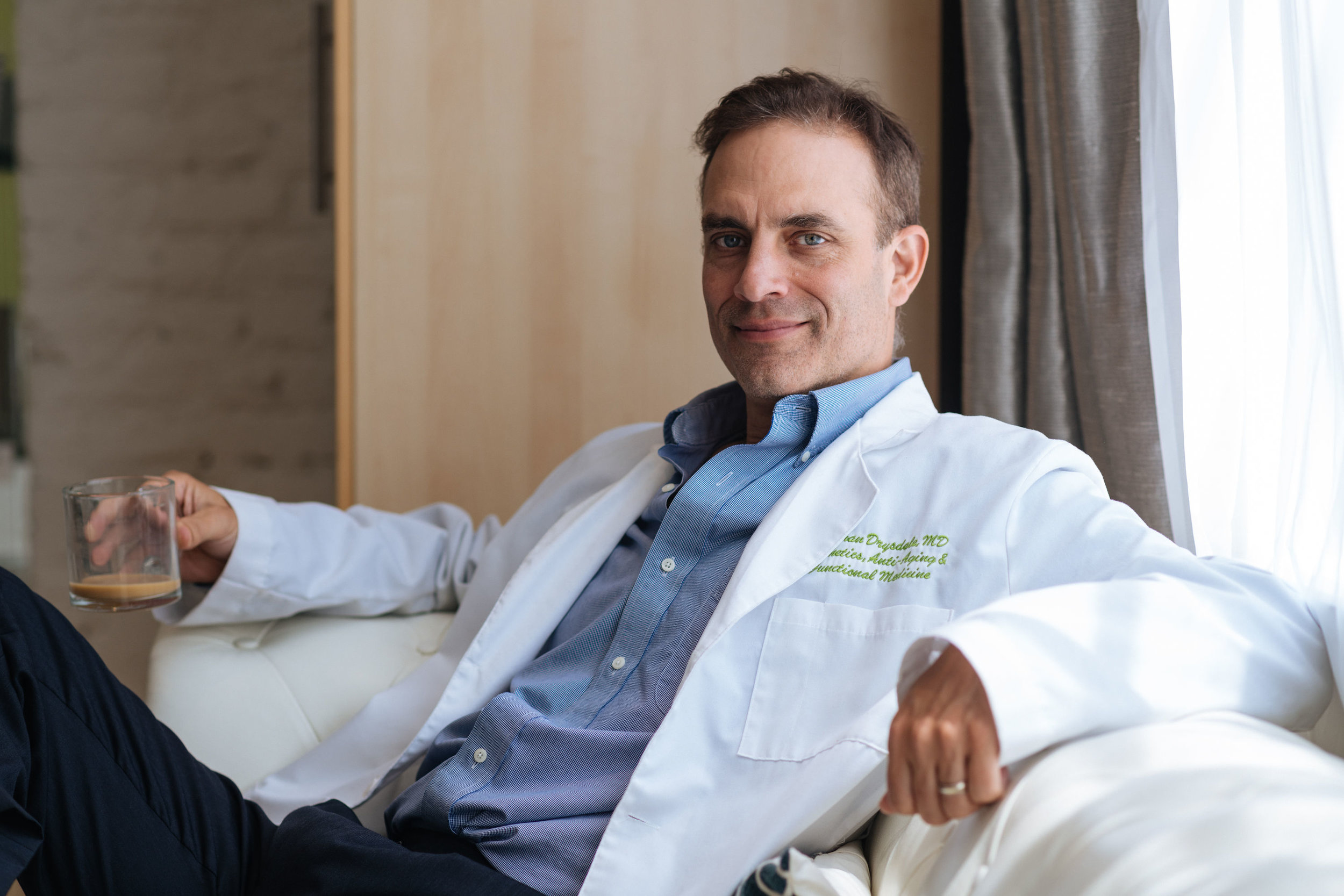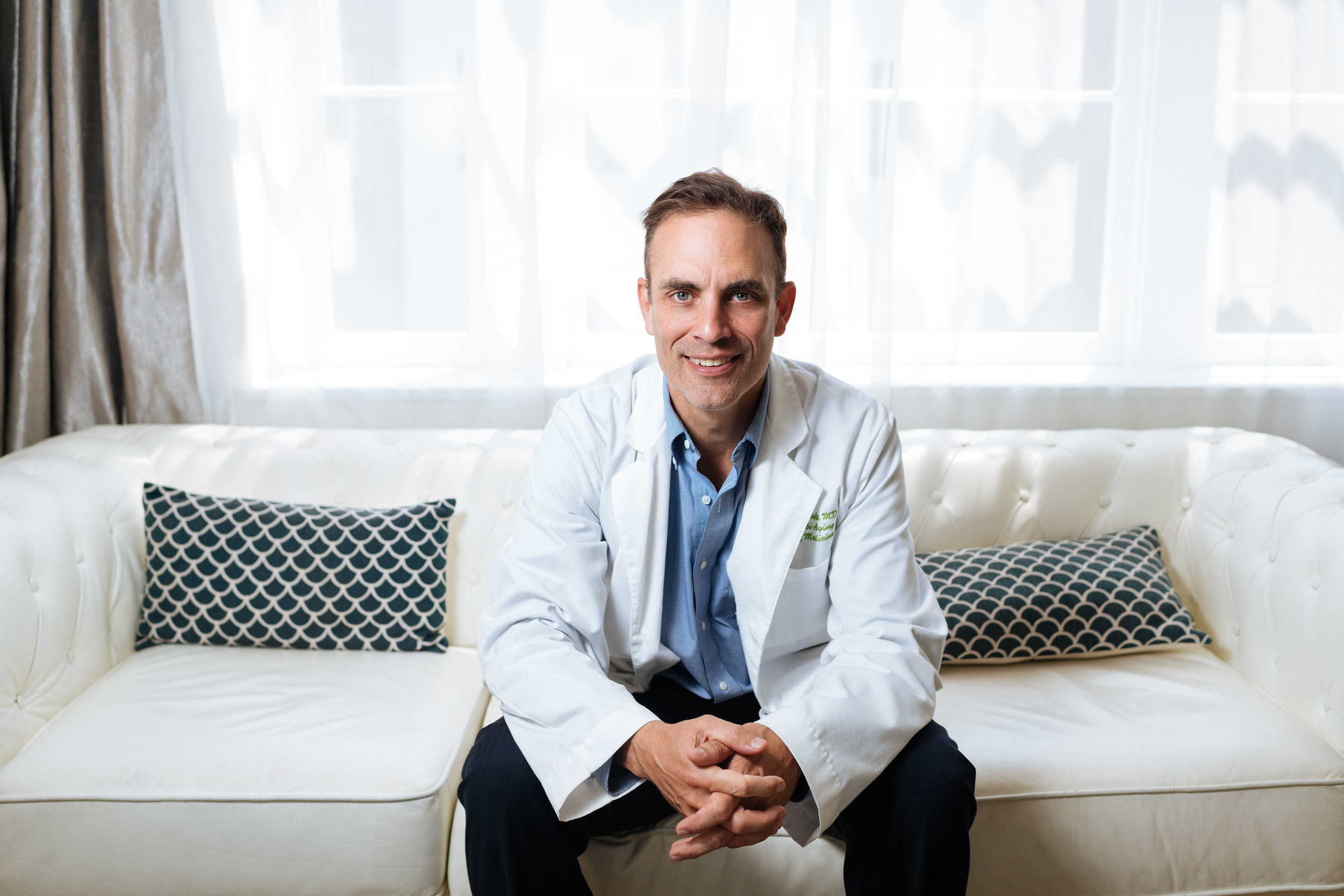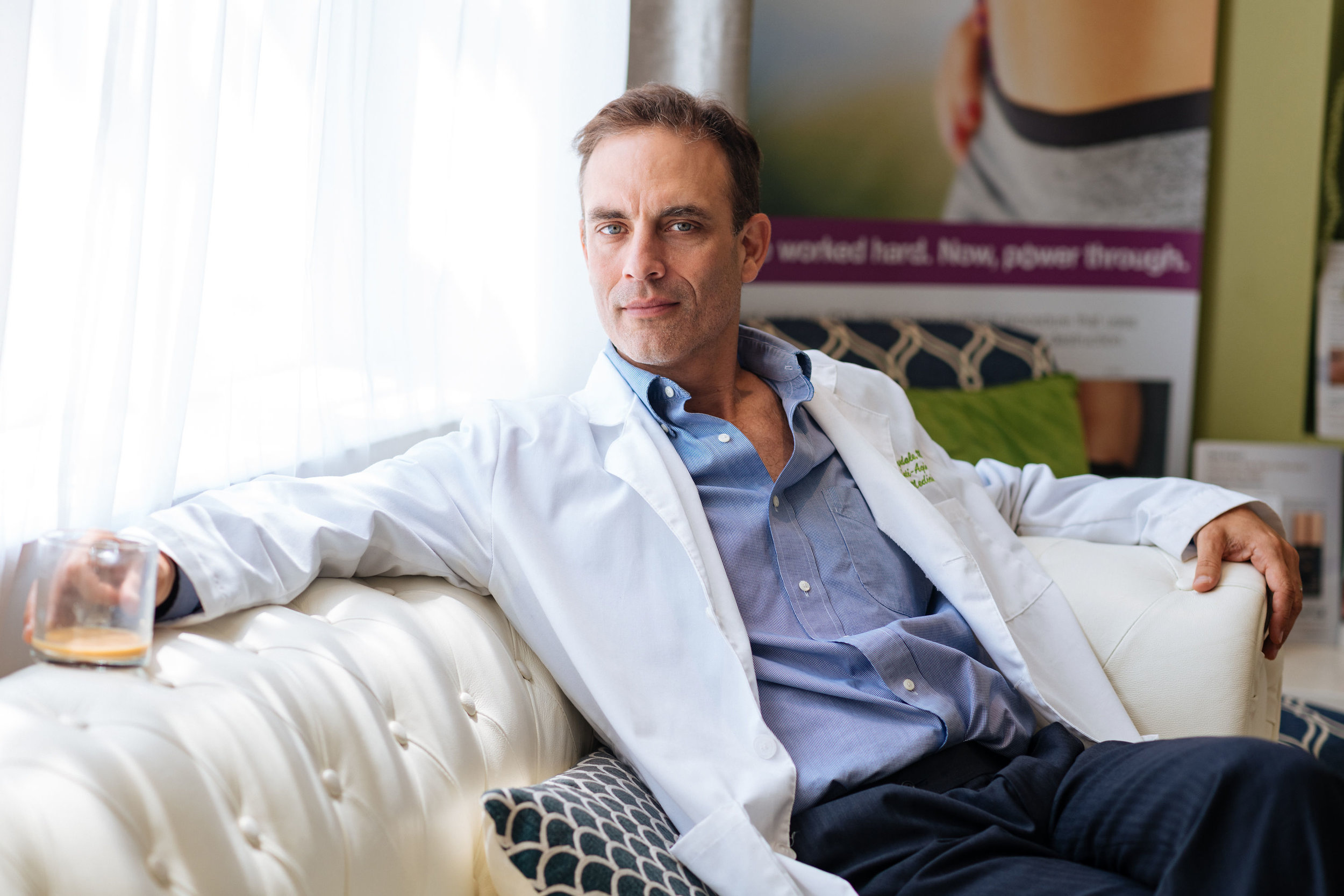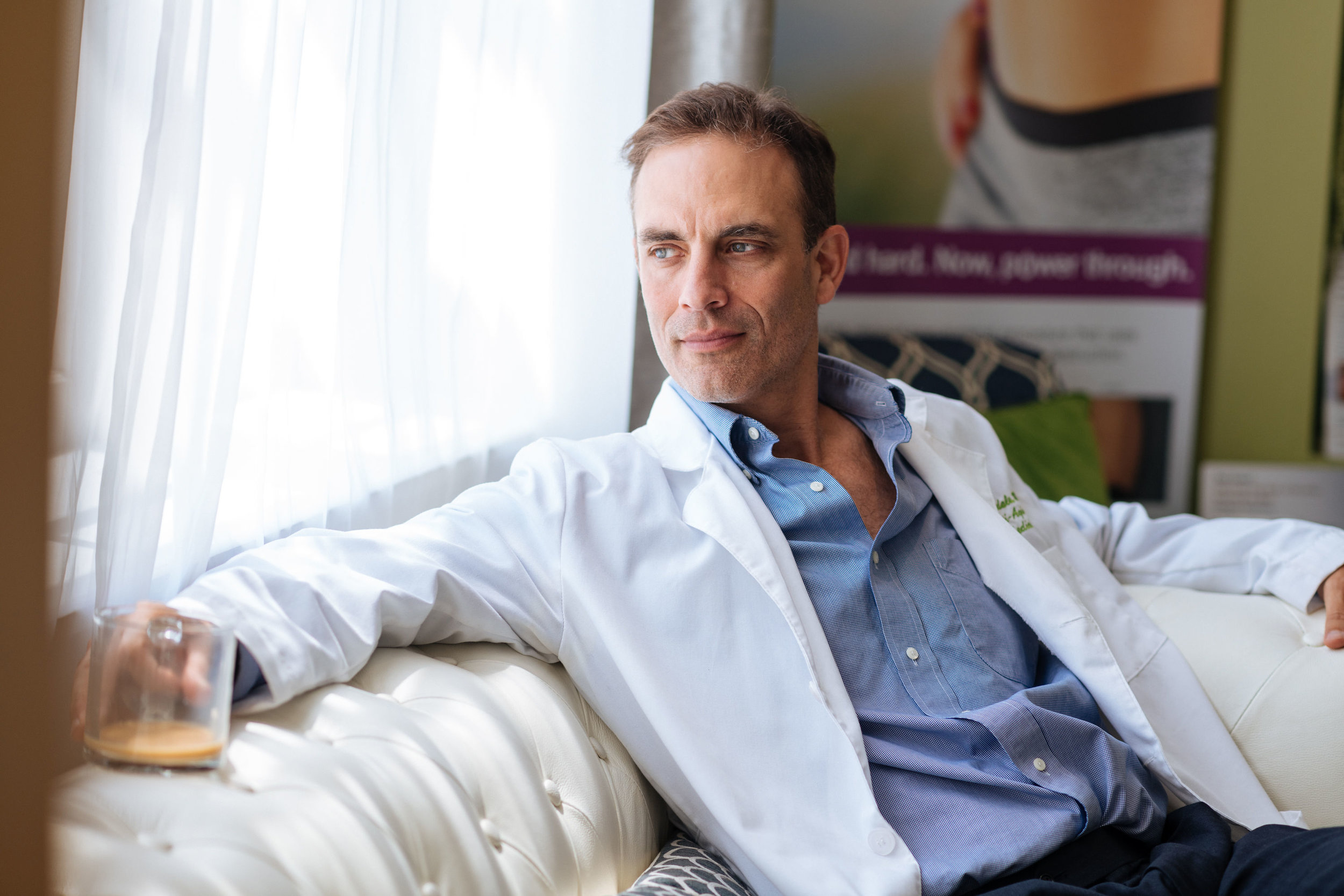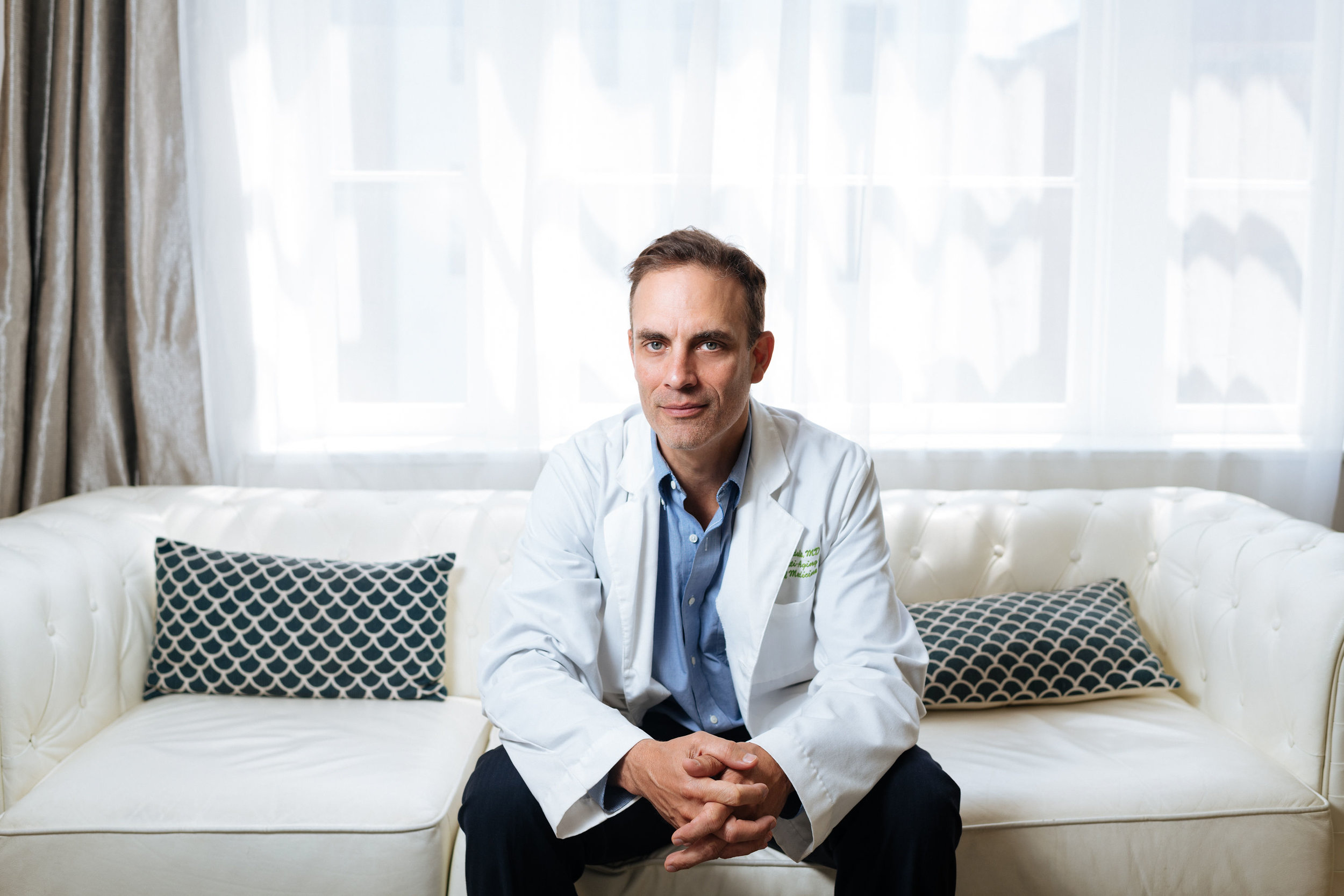‘I Think Beauty Becomes Dangerous When You Make It a God’
Dr. Jono Drysdale
Hela Medical Spa
3209 M St NW
The morning of 9/11, Dr. Jono Drysdale was scheduled to remove a patient’s body hair.
For the past couple years, he’d been leading a double life—recruited by a venture capitalist in the middle of an EKG as one of the first physicians at DC’s largest laser aesthetic medicine provider, just as the technology was hitting the market. By night, he was still working in the Fairfax Hospital ICU.
‘I was bouncing between the extremes of meaningful beauty seeking and vanity, and saving people or telling family members they died. I thought I was succeeding and a lucky guy, because during the day, I’d get $70 an hour to do a laser treatment that would take five minutes, and I could read Dostoevsky for the next 55 minutes in the treatment room. This company made hundreds of thousands of dollars a month off of me, but I didn’t know what equity meant at the time.’
But after an early jog that September morning—a woman running toward him screaming, ‘they bombed, they bombed’—Jono’s priorities snapped into focus.
‘I was supposed to work at the laser hair clinic that day, but I got in my red VW Golf and rode down the emergency lane of I-66 all the way to the hospital, sticking my stethoscope out the window the entire time. The greedy people I was working for had the gall to call and say, ‘That’s fine what’s happening right now, but we have people on the schedule, and you should come into work and get rid of their body hair.’ I told them not to call me again.’
Disgusted by serving as a medical pawn, Jono quit his job and left the country, traveling throughout Brazil and Argentina. On his return home, he ran into his best friend in New York, who was also at a career crossroads. Jono mentioned a physician in Georgetown who wanted out of her practice, and the two decided to purchase the business. In 2005, they opened Hela Spa (3209 M St NW).
Today, Jono and his fellow practitioners perform a wide range of skincare services for their clients—from celebrities to everyday Washingtonians, and the wives of Presidential candidates. Regardless of the client, Jono asks the meaningful questions—often delving into philosophical conversations about beauty.
‘A famous writer came in once and she wanted a lot of things done. We talked for a while, and eventually she said, ‘You made me realize I don’t want or need any of these things.’ She started crying, and then I started crying.’
Throughout his career, Jono has wrestled with what it means to save a life in the ICU one night, and remove a wrinkle the next morning. There’s no easy answer, except to say there’s value in both, if the intention is honorable.
‘I had to process that goodness and truth and beauty—you don’t find people making arguments against them. They become dangerous when you make of them a God. If you just chase beauty, you may become quite devilish. But just because people misuse beauty or make more of it than they ought to doesn’t mean I’m going to let them take away the value of beauty.’
He wasn’t always immune to the chase.
The son of an international economist, Jono spent his developmental years as an outsider in South America, Central America, and Nigeria. His family moved to the U.S. when he was 11—a blonde kid with a bowl cut and dreams of becoming a jazz musician and professional soccer player.
By high school, he felt himself succumbing to the pressures of a culture that often defines a person by their looks, desperate to look like the curly haired guys he saw in GQ.
‘I went into the bathroom once and was trying to curl my hair when my grandmother walked in. She was kind of like a Lithuanian mystic and she started praying for me,’ recalls Jono—whose hair grew back brown and curly after he shaved it in college. ‘I also saw all these girls in my high school who were quite beautiful but felt like they couldn’t compete with Vogue, and were almost intentionally making themselves ugly in a punkish rebellion. I could see this vain culture, and the ability to make that a market was dangerous—but it doesn’t take away from the beauty of making people beautiful.’
Cognizant of such societal pressure and the potentially addictive nature of his business, Jono didn’t show a single face on Hela’s website for the first few years—opting instead for images of nature. Eventually, that gave way to the demand for before and after shots.
It’s a complicated way to make a living for a man who spent a summer working at the poorest medical clinics in India, and another year studying theology. A man who understands that his career is rooted in something more than skin-deep—for better or worse.
‘I remember the first time I lifted an aging model’s face with an injection. I did half her face and she ran out of the room and looked in the mirror. I did the other side and she was overwhelmed. She was so happy she was crying—but I also knew she was never going to get the same rush she got after that first time.’
Despite the pitfalls, Jono believes in the inherent value of his work. As he’s matured in both practice and philosophy, his perspective has also shifted.
‘When I first started looking at Botox, I was like, ‘What did we succumb to, putting the most powerful poison per weight into our faces?’ Then I started studying it closely, and I started thinking you know what—there’s something beautiful and gracious about this. It softens the painful reality that we’re all going to die. If for a little while you can soften that and do it well, it’s artistry—and there’s a real value in that. It’s not abusive, it’s beautiful.
‘People who were sadder than they needed to be about losing their beauty suddenly were happier, because they were seeing themselves more like they thought they were. By not being so distracted by their disappointments with their appearance, it frees them up to live a generous, other-focused life. I think the grace of reversing signs of aging—injecting beauty—makes way for generosity. I hope to tap into those realities more creatively in the days to come.’
